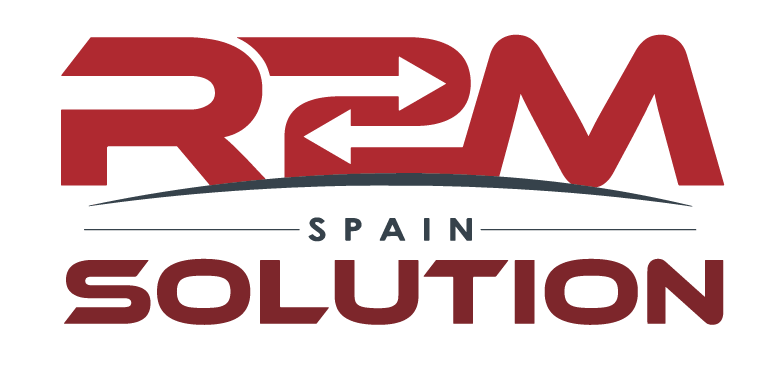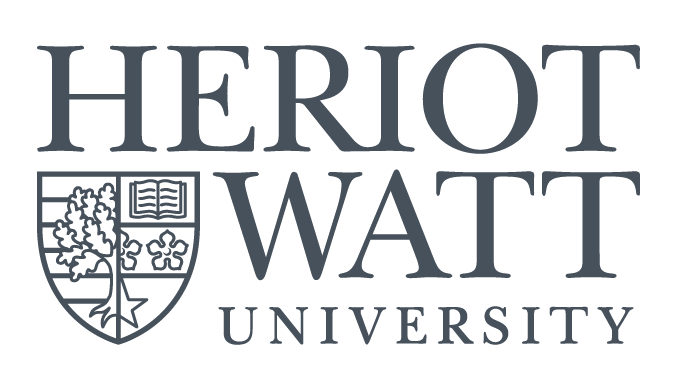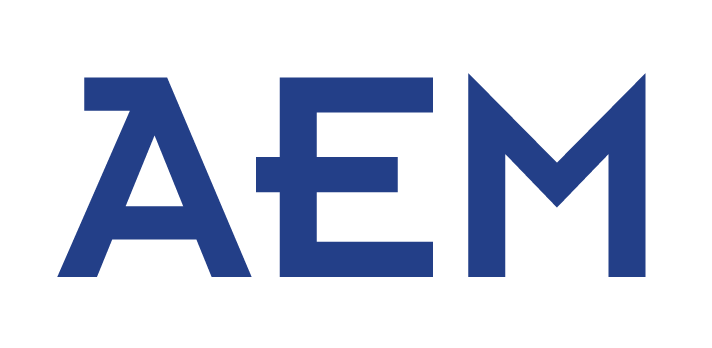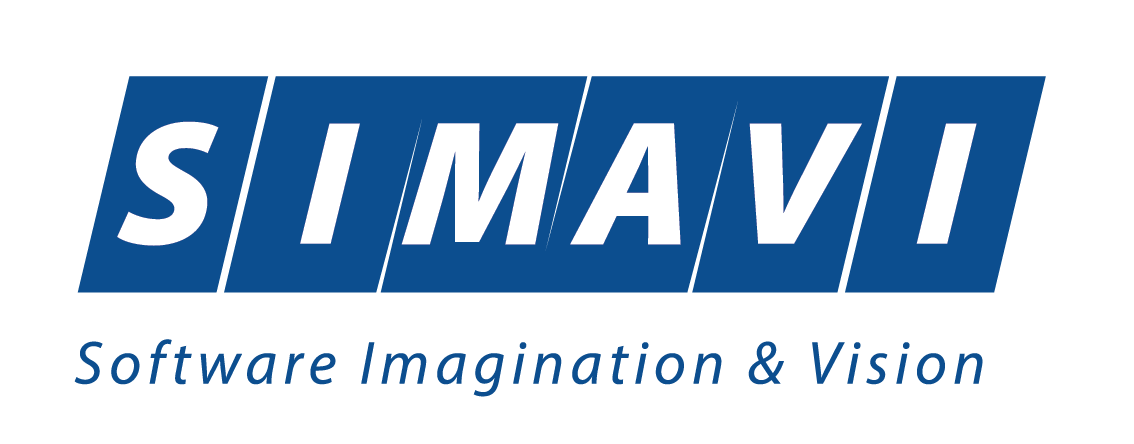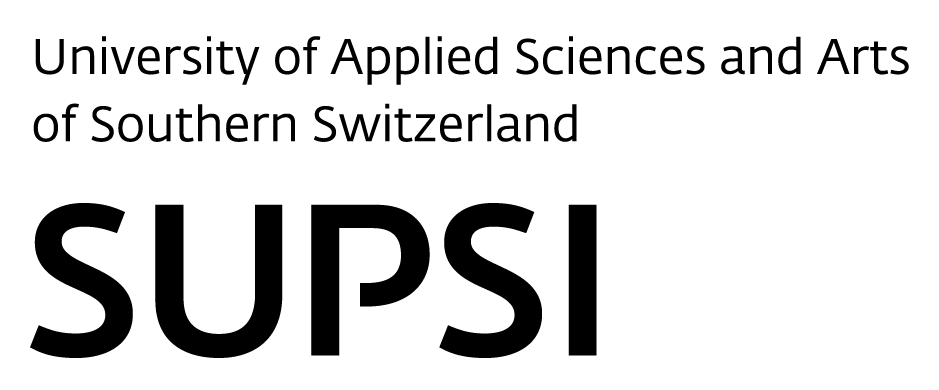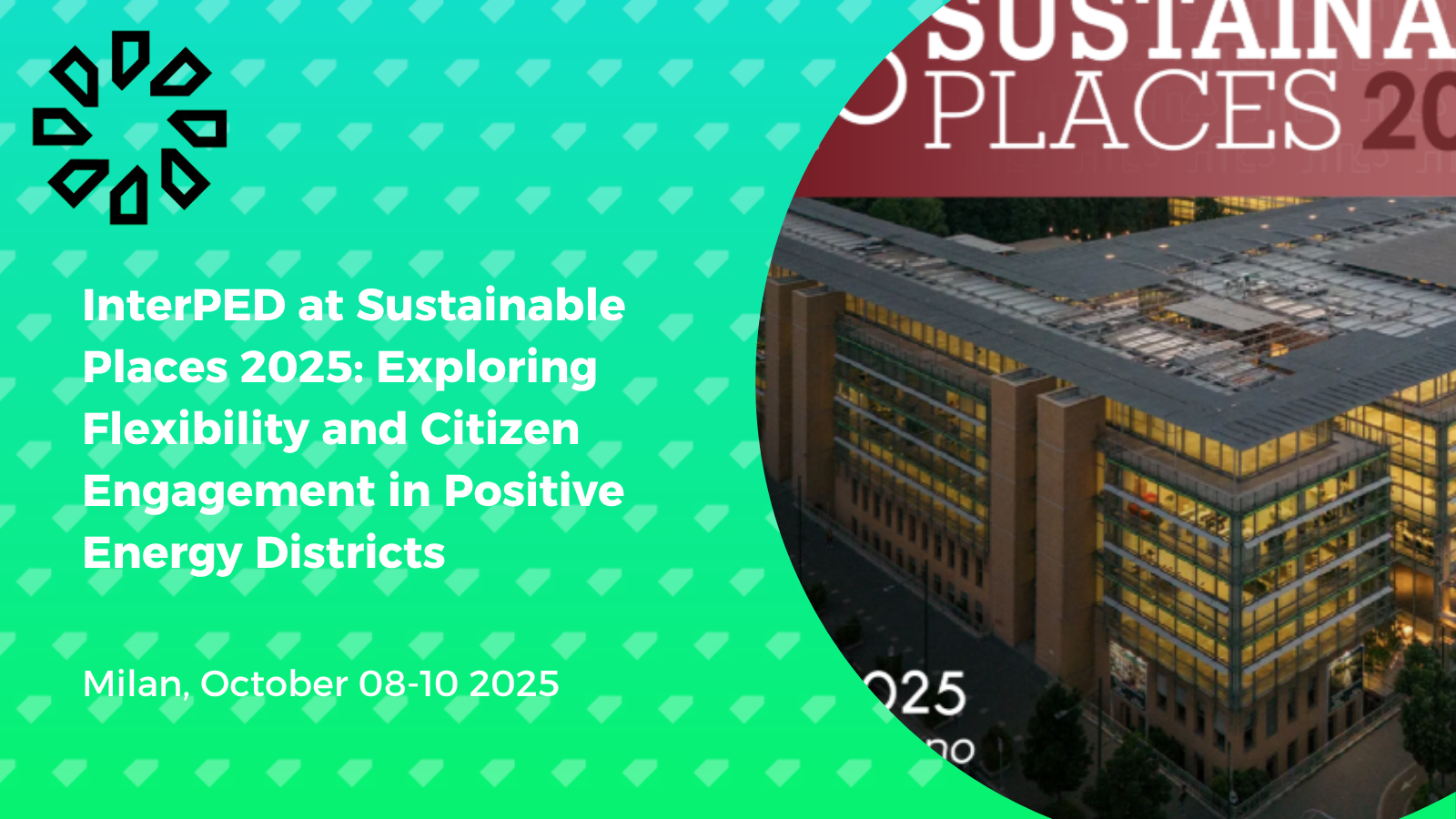From 8–10 October 2025, InterPED participated in Sustainable Places 2025 (SP25) — Europe’s premier conference on energy-efficient and climate-neutral urban transformation — held at the Monte Rosa 91 Conference Centre in Milan, co-organised by R2M Solution, InterPED’s coordinator, in collaboration with the Comune di Milano.
During the three-day event, InterPED joined key European projects and experts to discuss two of the most pressing topics in the Positive Energy District (PED) landscape: energy flexibility and citizen engagement.
Building Flexible Energy Communities: Remuneration, Aggregation & Market Analysis
Day 2 | 9 October 2025 | 16:00–17:30 CEST | Room 1
🎥 Watch the recording here: YouTube Video
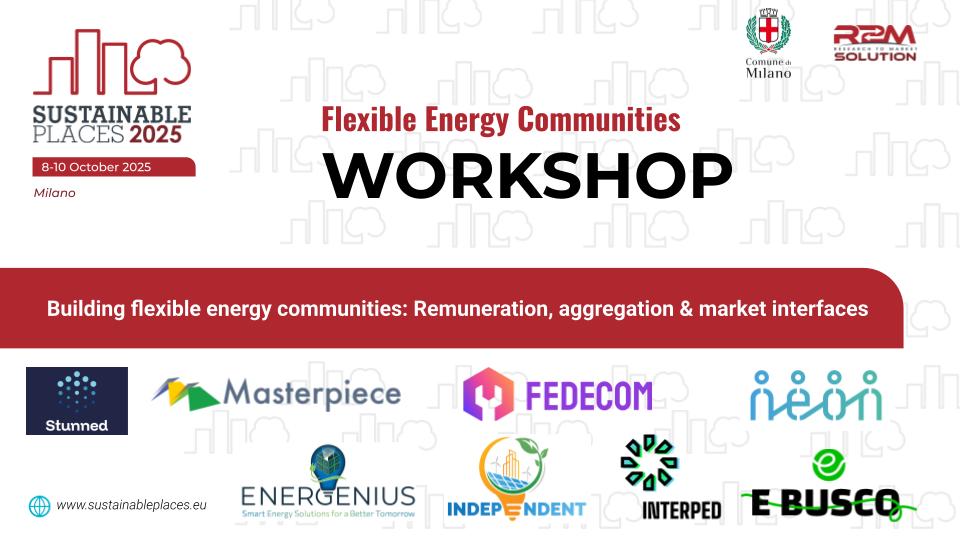
Flexibility is one of the defining challenges of the clean energy transition. While it is a central concept in modern energy communities, practical methods for managing flexibility remain limited. The workshop explored how projects are developing operational, contractual, and digital solutions to activate flexibility within local energy ecosystems.
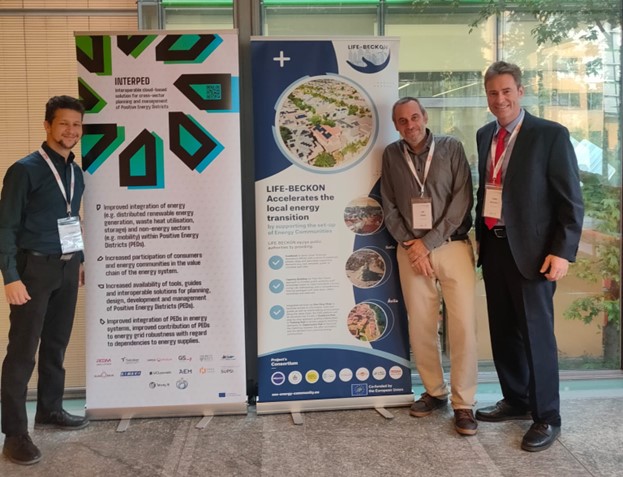
Participating projects — STUNNED, FEDECOM, NEON, Masterpiece, E-BUSCO, INDEPENDENT, and InterPED — presented diverse approaches to enabling flexibility through three thematic pillars:
- Operational Complexity – Optimising distributed energy resources and activation strategies.
- Governance & Contractual Innovation – Defining fair stakeholder frameworks and remuneration schemes.
- Digital & Physical Infrastructure – Leveraging software, hardware, and data tools for real-world deployment.
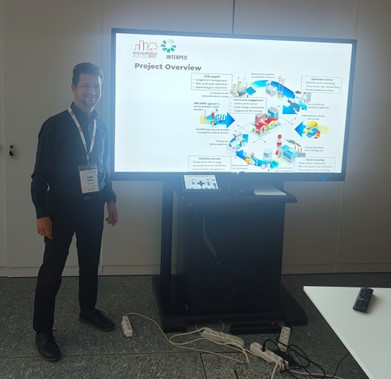
InterPED highlighted its work on developing cross-vector management solutions that integrate power, heating, and mobility systems within local communities, ensuring that flexibility markets are not only efficient but socially inclusive.
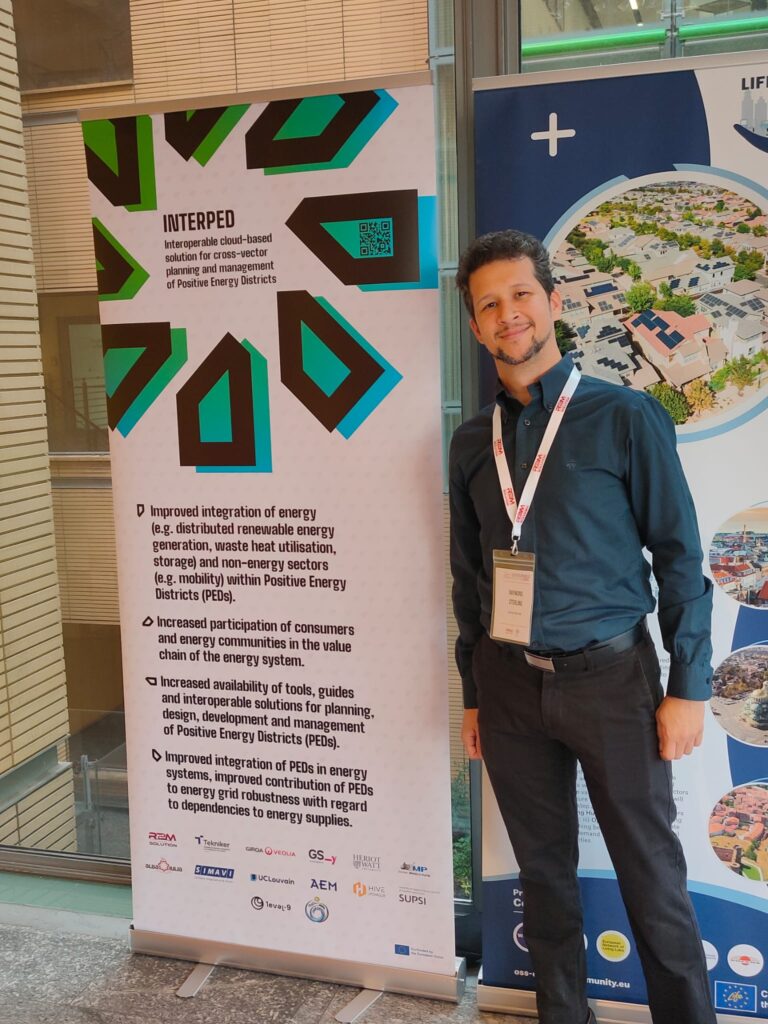
Strategic Citizen Engagement and Impact in Positive Energy Districts
Day 3 | 10 October 2025 | 14:00–15:30 CEST | Room 4
🎥 Watch the recording here: YouTube Video
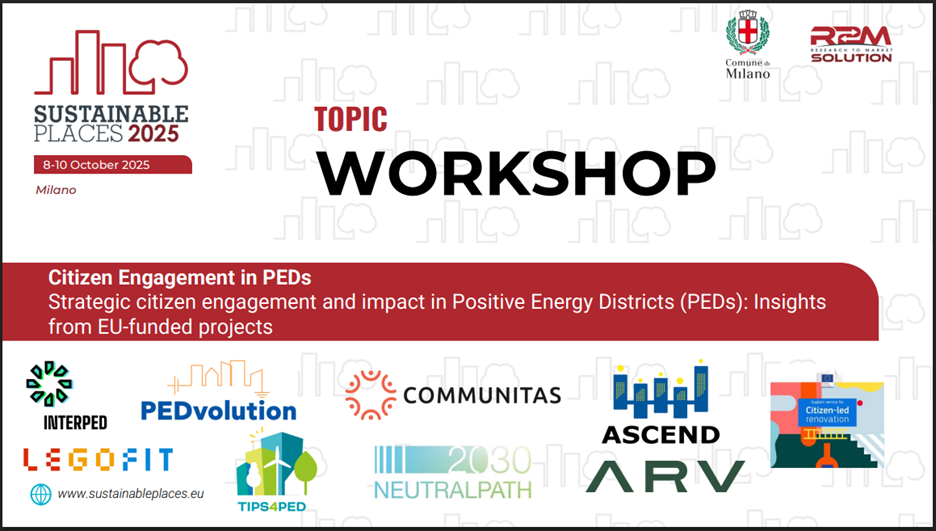
Citizen engagement remains at the heart of every successful PED. This session gathered nine EU-funded projects — InterPED, TIPS4PED, ARV, COMMUNITAS, PEDvolution, Citizen-led Renovation, NEUTRALPATH, ASCEND, and LEGOFIT — to explore how citizen participation shapes the long-term sustainability and social acceptance of energy-positive communities.
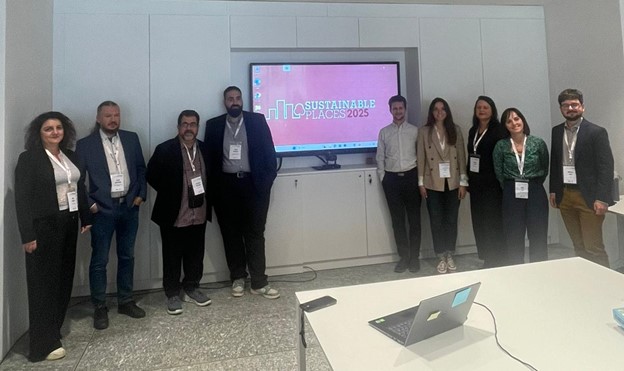
InterPED’s contribution, “Different Approaches to Ensuring Citizen Impact in PED Projects,” emphasised that Europe’s energy transition is not only technological but deeply societal. The project underscored the need for citizens as co-creators — active participants who help design, operate, and sustain local energy systems. Drawing from its pilot experiences, such as the Findhorn Ecovillage, InterPED demonstrated how participatory design and co-creation workshops foster community ownership and lasting impact.
Co-creating Europe’s Sustainable Urban Future
Through its participation in Sustainable Places 2025, InterPED reinforced its mission to bridge technological innovation with social inclusion in the development of Positive Energy Districts. The event showcased how collaboration across projects, disciplines, and communities is vital to shaping the next generation of sustainable cities.


